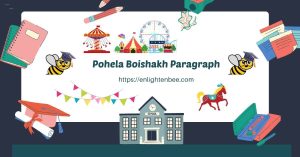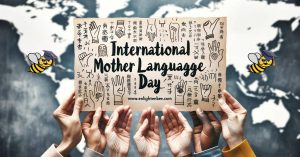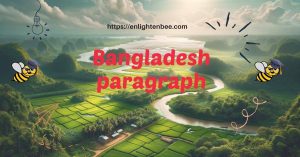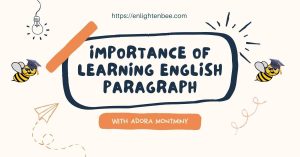1. A Book Fair Paragraph
Every year in Bangladesh, a special event takes place in February that excites many people, especially those who love books. This event is the Ekushe Boimela, also known as the ’21st February Book Fair’. Held in Dhaka, it is not just any ordinary book fair; it is a tribute to the brave souls who sacrificed their lives for the Bengali language in 1952. People from all over the country come to visit. There are hundreds of stalls filled with books of various genres like fiction, history, poetry, and science. New writers get a chance to showcase their work, and well-known authors come to meet their readers. It’s a place where knowledge and culture come alive. Children are equally excited, running around with colorful books in their hands, attending puppet shows, and listening to storytellers. Food stalls offer traditional Bengali snacks, making it a festive atmosphere. The Ekushe Boimela is not just about buying and selling books; it’s a celebration of Bengali culture, language, and history. It reminds everyone of the importance of preserving one’s language and heritage. The book fair lasts for an entire month, but its memories stay in people’s hearts for a long time. It encourages reading habits among the young and old and highlights the beauty of the Bengali language.
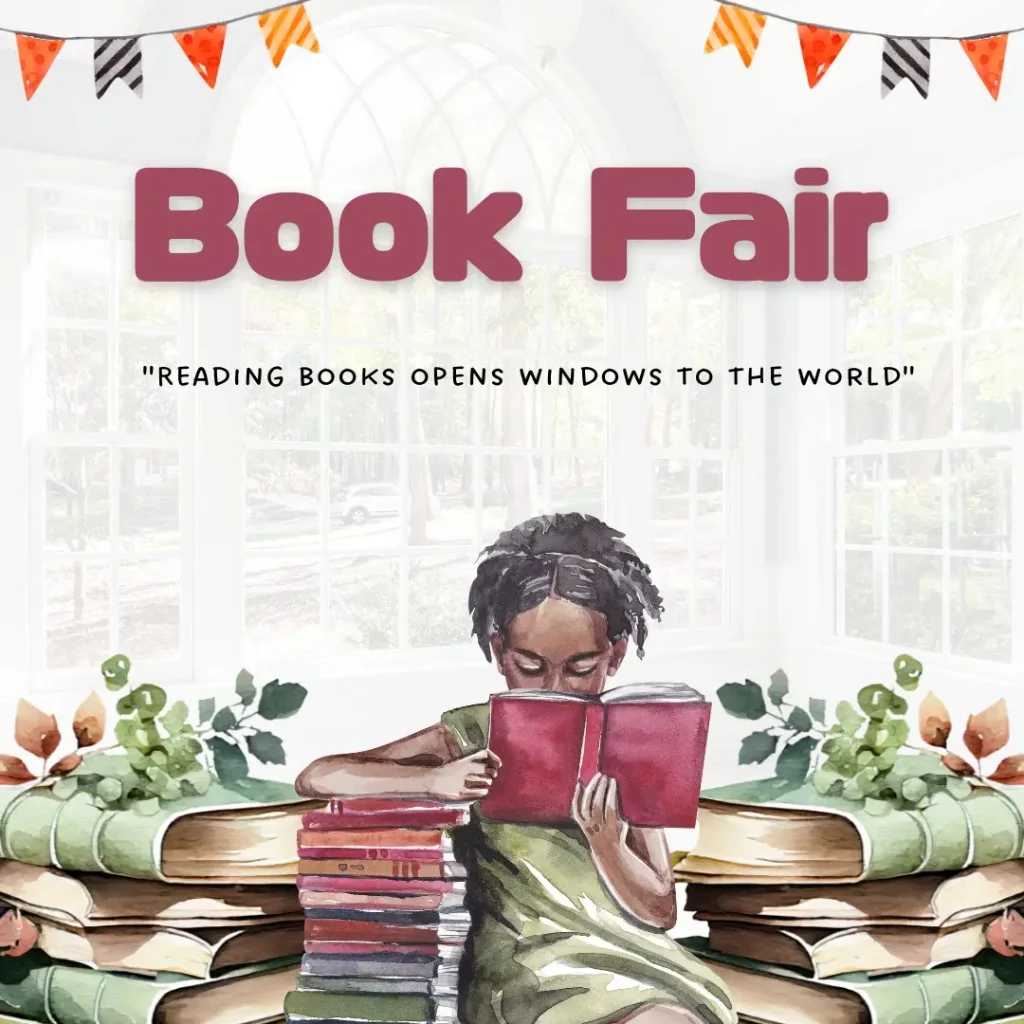
Difficult Words for A Book Fair Paragraph:
- Tribute (শ্রদ্ধাঞ্জলি): An act, statement, or gift that is intended to show respect or admiration.
- Genre (শৈলী): A style or category of art, music, or literature.
- Showcase (প্রদর্শন): Display or exhibit.
- Preserving (সংরক্ষণ করা): To keep something in its original state or in good condition.
- Heritage (ঐতিহ্য): Traditions, values, and objects that we receive from past generations.
2. A Book Fair Paragraph
In the heart of Bangladesh, during the month of February, Dhaka transforms into a hub of literary wonders and cultural celebrations. This transformation is credited to the Ekushe Boimela, a grand book fair that is more than just a commercial event. The essence of the Ekushe Boimela lies in its commemoration of the sacrifices made by valiant youths in 1952 for the recognition of the Bengali language. As you step into the fair, you’re greeted by rows and rows of stalls, each bursting with books that cater to every imaginable taste. From intricate poems to riveting novels, from in-depth historical analyses to light-hearted children’s stories, there’s something for everyone.
But what makes the Ekushe Boimela truly unique is its spirit. Unlike other book fairs, it’s not just about transactions; it’s a gathering of minds, a place where authors and readers meet face-to-face. For aspiring writers, it’s a platform where they can debut their talents, while seasoned authors use the opportunity to engage with their fan base. Numerous literary discussions, poetry readings, and seminars are conducted, providing an enriching experience for attendees.
Children find the fair magical. Beyond books, they’re entertained with cultural performances, puppetry shows, and interactive storytelling sessions. This ensures they grow up with fond memories of the fair, associating it with joy, learning, and the importance of their mother tongue.
Food is another aspect that elevates the experience. Stalls selling traditional Bengali snacks like ‘fuchka’ and ‘chotpoti’ are scattered around, filling the air with enticing aromas. The combination of books, culture, and food turns the fair into a month-long festivity.
However, amidst the jubilation, there’s a sombre undertone. The book fair serves as a gentle reminder of the struggles faced by past generations to ensure that Bengali was given its rightful place in history. Attendees often pay their respects at the Shaheed Minar, a monument dedicated to those who laid down their lives for the language.
In conclusion, the Ekushe Boimela is not just a book fair. It’s a testament to the resilience of the Bengali spirit, a celebration of its rich literary tradition, and a beacon of hope for future generations. It reinforces the belief that language is not just a medium of communication but an emblem of identity and pride.
Difficult Words for A Book Fair Paragraph:
- Commemoration (স্মরণ): A ceremony or celebration to remember a person or event.
- Riveting (অত্যন্ত আকর্ষণীয়): Holding one’s attention; fascinating.
- Jubilation (উল্লাস): A feeling or loud expression of happiness or victory.
- Sombre (গম্ভীর): Having a dark or dull appearance or nature.
- Resilience (সহনশীলতা): The capacity to recover quickly from difficulties.
3. A Book Fair Paragraph
Every February, the heart of Dhaka comes alive with the vibrant hues and sounds of the Ekushe Boimela, one of Bangladesh’s most anticipated cultural events. Often referred to simply as the ‘Book Fair,’ the Ekushe Boimela is not just a commercial spectacle; it is a profound tribute to the martyrs who sacrificed their lives in 1952 for the recognition and rights of the Bengali language. As visitors traverse the labyrinthine aisles of the fair, they are met with a diverse array of literary treasures ranging from historic tomes and avant-garde novels to evocative poetry collections and lively children’s books. Each stall stands as a testament to the rich tapestry of Bengali literature and thought, beckoning readers from all walks of life.
What sets the Ekushe Boimela apart from other book fairs worldwide is its palpable atmosphere of reverence and pride. Amidst the hum of eager conversations and the rustling of book pages, there’s an unspoken acknowledgment of the significance of the Bengali language and its role in shaping the nation’s history and identity. Aspiring writers find a platform to unveil their nascent works, while established authors revel in the direct interaction with their readership, fostering a unique author-reader bond. Numerous literary seminars, discussions, and cultural programs intersperse the month-long event, creating a dynamic space for intellectual exchange and artistic appreciation.
However, the Ekushe Boimela transcends literature. It’s a celebration of Bangladeshi culture at its finest. Traditional music, dance, and theatrical performances breathe life into the event, providing a holistic sensory experience. Moreover, the fairgrounds resonate with the tantalizing aromas of traditional Bengali delicacies, turning it into a culinary haven for food enthusiasts.
Yet, amidst the joy and merriment lies a poignant reminder of the past. A visit to the Shaheed Minar, a monument erected in honour of the language martyrs, is almost ritualistic for attendees, reinforcing the sacrifices that laid the foundation for this grand literary celebration.
In essence, the Ekushe Boimela is not merely a book fair. It’s a reflection of the indomitable Bengali spirit, a fusion of the past and the present, and a beacon for the generations to come. It’s a testament to the power of language, culture, and collective memory in forging a nation’s identity.
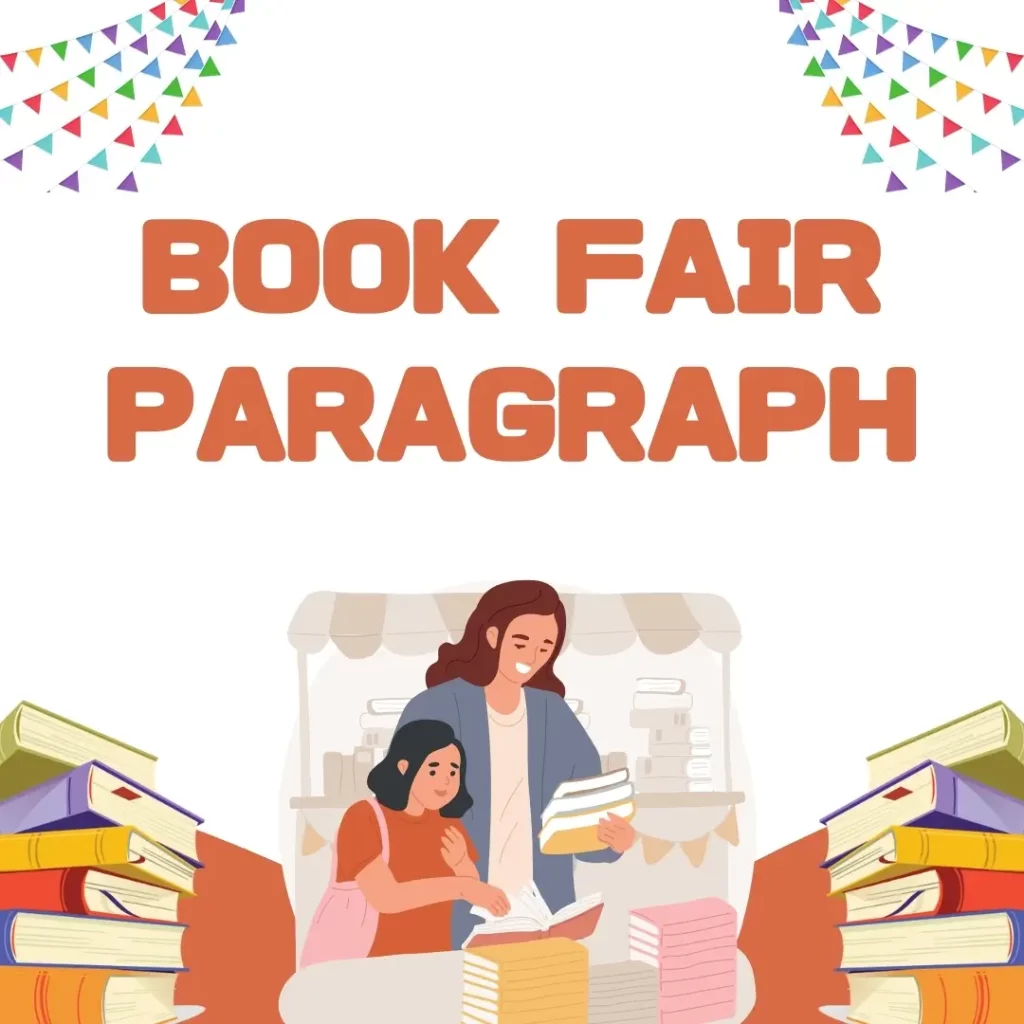
Difficult Words for A Book Fair Paragraph:
- Vibrant (প্রাণবন্ত): Bright and striking.
- Tribute (শ্রদ্ধা): An act, statement, or gift that is intended to show gratitude, respect, or admiration.
- Labyrinthine (জটিল): Complex and convoluted.
- Tapestry (কারুকাজ): Something that is considered to be rich, varied, or intricately interwoven.
- Reverence (শ্রদ্ধা): Deep respect or admiration.
- Nascent (নবজাত): Beginning to exist or develop.
- Revel (উল্লাসিত হওয়া): To take great pleasure or delight in something.
- Poignant (কটু): Evoking a keen sense of sadness or regret.
- Indomitable (অমর্জিত): Impossible to defeat or prevent.
4. A Book Fair Paragraph
In the sprawling urban expanse of Dhaka, February heralds a time of unparalleled fervour and exuberance. This is when the capital city becomes a veritable hub for bibliophiles, as the Ekushe Boimela, the iconic book fair, unfolds. At its heart, the Ekushe Boimela is more than just a commercial gathering; it stands as an emblematic commemoration of the brave souls who, in 1952, laid down their lives for the preservation and recognition of the Bengali language. As dawn breaks and the first light permeates the vast grounds of the Bangla Academy, the location of the fair, one can witness throngs of enthusiastic attendees, from zealous youth to contemplative elders, eagerly awaiting to explore the treasure trove that lies within.
Once inside, the atmosphere is electric. The winding pathways of the fair take visitors on a captivating journey through the annals of Bengali literature. Each makeshift stall, with its towering stacks of books, tells tales of poetic musings, historical sagas, contemporary narratives, and futuristic imaginations. The sheer diversity of genres on display, from spine-tingling thrillers to transcendental philosophical treatises, is a testament to the creative prowess of Bangladeshi writers, both emerging and established. And amidst this cornucopia of the written word, new authors, holding their inaugural works with a mix of pride and trepidation, can be seen engaging with curious readers, forging connections that might last a lifetime.
However, what truly sets Ekushe Boimela apart is its embodiment of the national ethos. The pervasive spirit of the fair is a melange of cultural celebration and solemn reverence. Between the animated discussions about the latest bestsellers, there are hushed conversations around the sacrifices of the language martyrs, reinforcing the gravity of the historical events that paved the way for this grand exposition. Adjacently, the towering Shaheed Minar stands sentinel, watching over the fair, a poignant reminder of the past and a symbol of the resilient Bengali spirit.
Yet, the Boimela isn’t solely about literature. As day turns to dusk, the air is filled with the mellifluous strains of traditional Bengali music, as folk artists and classical maestros alike take to stages dotted around the grounds. These performances, a vivid display of the rich tapestry of Bangladeshi artistry, draw massive crowds, who sway and hum along, lost in the enchanting rhythms. Moreover, for the epicurean attendees, the fair also offers a delectable array of local gastronomic delights, with the aroma of pithas, biryanis, and kebabs wafting through, creating an irresistible allure.
Another remarkable aspect of the Ekushe Boimela is its role as a catalyst for intellectual discourse. Throughout the month-long event, renowned academics, thinkers, and writers participate in seminars and panel discussions, deliberating on an array of topics, from socio-political issues to literary critiques. These sessions, often filled to capacity, are a testament to the fair’s stature as a cornerstone of intellectual enrichment in Bangladesh.
In conclusion, the Ekushe Boimela is not just a book fair; it’s a phenomenon. It encapsulates the essence of Bangladesh – its history, its culture, its aspirations. It’s a beacon of unity, a celebration of linguistic pride, and above all, a tribute to the indomitable spirit of its people. For the attendees, whether they depart with a bag full of books or simply cherished memories, the experience is transformative, leaving an indelible mark on their souls.
Difficult Words for A Book Fair Paragraph:
- Unparalleled (অতুলনীয়): Having no equal; unmatched.
- Veritable (সত্য): Used to emphasize the truth or accuracy of a description.
- Bibliophiles (গ্রন্থপ্রেমিক): Lovers of books.
- Emblematic (প্রতীকাত্মক): Symbolic or representative of something.
- Annals (ইতিহাস): Historical records or accounts.
- Cornucopia (প্রাচুর্য): A symbol of plenty.
- Melange (মিশ্রণ): A mixture or medley.
- Mellifluous (মধুর): Pleasingly smooth and musical.
- Epicurean (রসিক): Devoted to sensual enjoyment, especially that derived from fine food and drink.
- Deliberating (চিন্তা করা): Thinking carefully or discussing thoroughly.
- Encapsulates (সংক্ষেপে বলা): Expresses or represents the most important facts about something.
- Indomitable (অমর্জিত): Impossible to defeat or prevent.
- Indelible (অমোচনীয়): Making marks that cannot be removed.
Most Important Paragraph
| # | Paragraph Name | Paragraph Name |
| 1 | Adolescence Paragraph | Click Here |
| 2 | Deforestation Paragraph | Click Here |
| 3 | Environment Pollution Paragraph | Click Here |
| 4 | Global Warming Paragraph | Click Here |
| 5 | Load Shedding Paragraph | Click Here |
| 6 | Metro Rail Paragraph | Click Here |
| 7 | Moonlit Night Paragraph | Click Here |
| 8 | Online Class and Traditional Class Paragraph | Click Here |
| 9 | Price Hike paragraph | Click Here |
| 10 | Road Accident paragraph | Click Here |
| 11 | Tree Plantation paragraph | Click Here |
| 12 | Water Pollution Paragraph | Click Here |
| 13 | Food Adulteration Paragraph | Click Here |
| 14 | Winter Morning Paragraph | Click Here |
| 15 | A Street Hawker Paragraph | Click Here |





